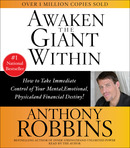
What exactly is SEO?
Search engine optimization is preparing or optimizing your site for the search engines so that your site comes up high in the results when someone searches for a keyword phrase.
The search engines use an algorithm to determine how your site will rank. There are 3 parts to search engine optimization:
1. The Foundation: This refers to your code. It should be clean and easy for the search engine
spiders to crawl. We refer to this as SEO Friendly.
2. On-page: This refers to your content and the actual “optimization” that is implemented to focus on specific keyword phrases.
3. Off-page: This refers to links and social media. These are things that are not on your site but that impact your site. Link popularity (the number of other sites that link to your website) is an
important off-page factor. This shows Google that other sites think your site is good and worthy
of a link. If your site is popular, than Google feels it’s worthy of a top ranking.
The definition as provided by http://searchenginewatch.com/define is: “The process of making a site and its content highly relevant for both search engines and searchers. SEO includes technical tasks to make it easier for search engines to find and index a site for the appropriate keywords, as well as marketing-focused tasks to make a site more appealing to users. Successful search marketing helps a site gain top positioning for relevant words and phrases.”
Why do I need SEO?
If you are looking to grow your business online, you need your site listed in the top of the search engines. There are over 400,000,000 searches online daily. These are people that are looking for information and items to purchase. As a website owner, your goal should be to get your site in front of as many potential buyers as possible.
Top rankings is one of the best ways to make sure that happens.
Why do the search engines make so many changes?
The search engines have one goal: to deliver the best possible results in response to someone’s query. They are constantly tweaking their algorithm to make sure they are ranking the best sites. People are changing how they search, site owners are changing their sites and the engines need to respond and make sure their algorithm is always fresh (to prevent people who have found ways to scam their way to the top with “black hat” techniques).
While most people dread algorithm changes, I find them a great opportunity. If you are aggressively but ethically optimizing your site, you should have nothing to fear and any shake ups create opportunity for you.
What is social media?
Social media is “A category of sites that is based on user participation and user-generated content. They include social networking sites like LinkedIn or Facebook, social bookmarking sites like Del.icio.us, social news sites like Digg or Reddit, and other sites that are centered on user interaction.” (Source: http://searchenginewatch.com/define)
Why do I need social media and SEO?
Social media and SEO are becoming more interconnected (read my post on breaking Google and Bing news from October for a perfect example of how the 2 are connected:
As things evolve and change, they are only going to become more interconnected. Ignoring one or both just leaves your site that much further behind the rest of the sites out there that are actively participating in SEO and social media.
Social media can boost SEO rankings as well as drive traffic and create brand awareness.
Is Blogging still important? Why do I need Blogging and SEO?
Blogging is a great way to share current and interesting information about your company and your industry. The search engines like Blogs because they are well organized, they can be designed to be very search engine friendly (with the right plugins and themes) and they are usually updated much more frequently than a website.
A Blog is a great way to boost SEO rankings, drive traffic (from Blog directories and engines) and it’s also a great way to build trust and credibility, which should help boost sales.
To request a quote on getting a Blog set up, or to see if you are getting the most out of the Blog you have, email jennifer@ecombuffet and use “Blog Consultation Request” in the subject line.
Facebook is a waste of time that I don’t have. Do I really need to be on Facebook?
You don’t need a personal account and don’t need to be personally using Facebook in order for your business to benefit. Facebook allows you to create a Fan Page for your business, without having a personal account.
You can use your Fan Page to build an audience. Your Fan Page can drive traffic back to your main site, you can add an opt-in form and collect leads, you can have contests and share news and information. You can republish your Blog as a feed.
There is a lot you can do to grow and promote your business without ever creating a personal account or wasting time.
What do I need to do to prepare for 2010?
1. Make sure your site is well optimized.
2. Make sure your site loads quickly (there’s a lot of talk about the importance of the speed of your site in 2010)
3. Make sure you have a strong Facebook Fan Page
4. Make sure you have a strong Twitter presence in place and a strategy
Things are getting more competitive and things are changing quicker than ever before. If you want to do well in 2010, now is the time to start getting things in place.







